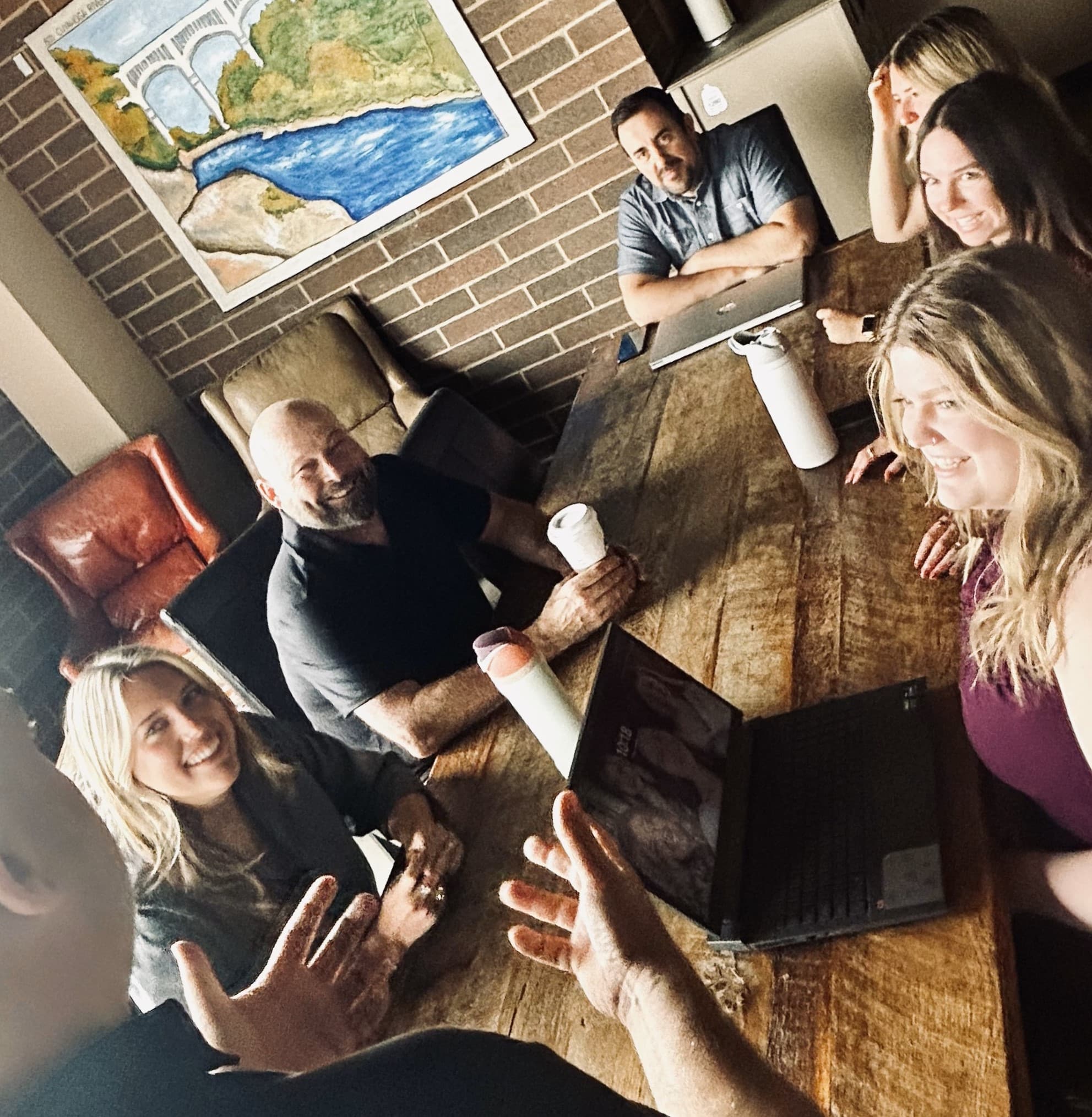Helping Retail and Ecommerce Websites Rank Better For More Than 25 Years
K6 Digital Marketing helps B2C companies get more online sales via ecommerce SEO, and works with consumer and retail websites to grow their online businesses. If you are tired of watching the competition outrank and outgrow you, it’s time to give us a call.
To Gain More Online Sales, You Need the Right SEO Strategy – this starts with a properly optimized ecommerce site
Consumers use search engines every day to find products they are interested in purchasing. But if you are not ranking near the top of Google’s search results page, your competitors are taking those customers. And there are plenty of competitors out there.
Statistics from Statista indicate that ecommerce sales were at 1,336 Billion U.S. dollars in 2014, growing to 5,311 Billion U.S. dollars in 2022. That’s just about 3x growth in online sales in eight years. By 2027, forecasts anticipate ecommerce sales to rocket upwards to 8,034 Billion U.S. dollars – that’s a 50% growth expectation from earnings in online sales in 2022! Clearly, ecommerce websites and online selling are here to stay, so why not do everything you can to boost the efficacy of your site to catch some of that explosive growth for your business?
Let’s discuss some of the basics of SEO for ecommerce sites, including technical SEO, content marketing to help build your brand while you’re boosting online sales, and leveraging Google Search to bring more visitors to your site who seek what you are selling but don’t know your brand in the marketplace.
Ecommerce SEO Basics
It is very important to target customers correctly, targeting the keywords they are most likely using to find your products, and helping them to decide to purchase from you. Keyword research is thus extremely important for ecommerce SEO, and baking those keywords into your site from top-level categories to the minutiae or your product descriptions can go a long way towards helping you rank better with search engines.
High-Intent Search Terms
How closely does your keyword match an actual shopping attempt query? Some people search on solutions rather than for a product, in the hopes that they can accomplish a goal for free, or by themselves. We need to find the right keywords for your products, that actual buyers are using on Google Search or with other search engines. Fortunately, we have tools that let us to discern just what those keywords are, so we’re able to guide our clients in using those trenchant keywords.
Product Descriptions
Obviously you need to use important, relevant keywords on your product pages and product names. But does the description also sell the product and present it in a way that helps the person decide to purchase? Remember, the more details you provide in your product descriptions, the better your chances of not just ranking higher – but getting a sale – will be. A strong aspect of ecommerce SEO is developing and enhancing the product descriptions to include valuable keywords AND valuable descriptive information on the products to make them come alive to your online shoppers. Afterall, they’re not in a brick-and-mortar store, so informing their imaginations with as much info as you can provide for the products on your ecommerce website will prove helpful towards your sales goals.
User-Friendly Experiences
The expression goes that “retail is detail.” This is especially true online, when competitors are just a click away. We examine data to determine if your customers are engaging with your content and following a path to conversion, or if there is “friction” that is keeping them from making an online purchase. Healthy SEO strategy entails reducing that friction – be that with more images of the products or with quotes from past buyers about what they LOVE about the product being considered. A strong online store provides all the details that help to push visitors to buy.
Product Images
Speaking of images, never underestimate the power of great photographs. Think about the way retailers showcase products in the physical world: they typically display the best-looking product in a controlled lighting environment, such as a display case, along with calls to action that build excitement for the product. You should carry that same strategy to your online store. Hire a professional photographer to take great pictures of your products, with proper lighting and good angles. Show your visitors the product from many angles to leave nothing to their imagination – that’s solid visual content marketing for your potential buyers who are not able to hold the product in their hands or to taste it!
Ecommerce Stores Need Great Content Too
Like every other SEO campaign, quality content should be part of your ecommerce Seo strategy. After we build our target keywords, we develop supporting content into your site that is not only keyword-rich, but also attempts to answer questions your audience is actively asking.
Some of the content we can build for ecommerce SEO includes:
Highly Detailed Product Descriptions – we will ensure that every product category and individual product includes rich details that enable shoppers to make a decision for purchase. As detailed above, SEO best practices dictate that targeted keywords are used in these descriptions whenever possible.
FAQs – a good content marketing strategy that helps with both SEO and conversions is to address as many questions as possible right in the product content. So, rather than a general “FAQ” page that attempts to capture general questions, we build specific product-level content right into the page. This content is not built entirely from our own imaginations, but rather comes from actual research into what questions people actually ask (via sites like Reddit, Quora and Google data). Answering specific product-based questions reduces the “friction” discussed above.
Product Guides – these can take many forms, but product guides help the shopper to learn how best to select and use your products for their situation. Product guides are normally not at the top of one’s SEO checklist, but are recommended to develop once the site optimization basics have been addressed and you or your SEO agency has more time for extended projects.
Technical SEO is Extremely Important
Every ecommerce platform uses intricate, complex technology. And stores with thousands of products are inevitably going to run into technical issues that can cause site architecture problems for Google’s crawler. Among the technical SEO issues we address for your Ecommerce site are:
Duplicate content – lots of product pages and product categories can lead to a lot of the same words and repetition. There’s a right and wrong way to handle this common issue so that search engines don’t “assume” you’re trying to scam them with duplicate verbiage.
Too many redirects – when products or categories change, get moved, or are deleted for various logistical reasons, the tendency is to redirect the pages. This can begin to cause complex direct loops that need to be corrected or prevented. Technical SEO expertise is very important here, both for preserving and advancing rankings to bring-in more visitors, and for UX (user experience) that keeps folks on your ecommerce website (and coming back again and again!)
Broken internal links – ecommerce sites tend to accumulate broken links when products are added, deleted, or changed. It’s the nature of online sales sites, but it’s bad for UX (user experience).
Page speed issues – ecommerce is a visual experience, so large image files, multiple product angles, heavy Javascript and ecommerce system plugins tend to cause the page to load slowly or not at all. This is another bad UX scenario that displeases your site visitors and affects search engine rankings over time.
Digital Marketing and SEO Best Practices with K6
We’re barely scratching the surface on the depth of digital marketing and SEO services that can improve an ecommerce website! From Paid Google Ads campaigns, the best SEO plugins, Google Analytics and Google Search Console insights, and developing your strategic sales funnel, to URL structure, email marketing, Google Merchant Center, social media promotions, and recommended content management systems for ecommerce – there’s a wealth of knowledge and expertise to tap into that is available with K6 Digital. We’re here to help your ecommerce platform achieve greater SEO success and wider digital marketing fluency in the online retail world.
Let’s have a conversation about what search engine optimization and other digital strategies can do for your online business today! There’s really no reason to “shop around” any further.



